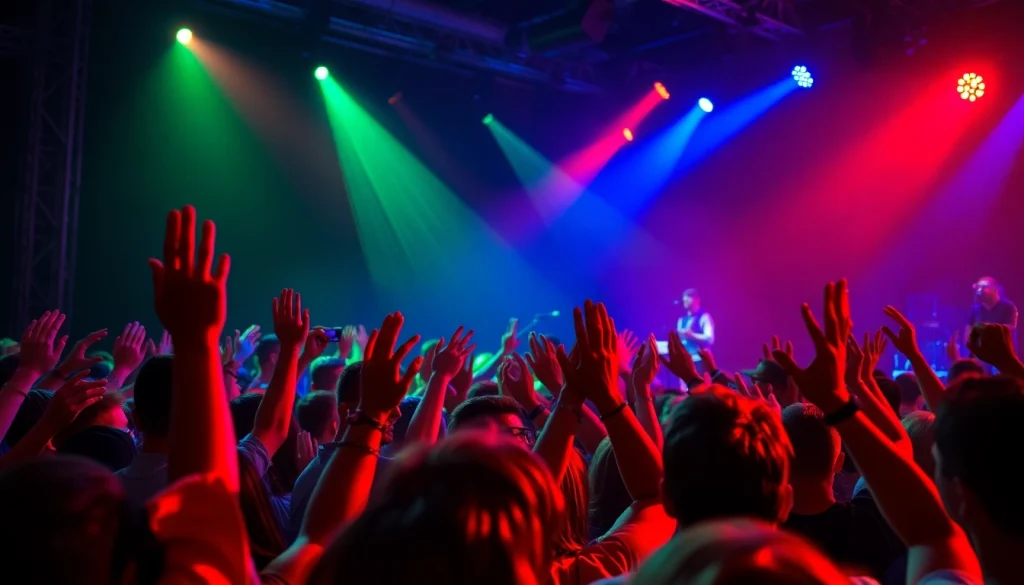The Importance of Fan Engagement in Music
In today’s highly digital music landscape, engaging fans is no longer just an afterthought—it’s an essential component of any artist’s strategy. With the rise of social media platforms, streaming services, and an ever-increasing number of artists entering the industry, establishing a meaningful connection with fans is the key to longevity and success. Effective Fan Engagement can turn casual listeners into loyal supporters and advocates for an artist’s work.
Understanding Your Audience
To foster effective fan engagement, it is paramount for artists to understand their audience. This involves analyzing demographics, preferences, and behaviors to tailor interactions uniquely. By utilizing analytics tools available on platforms like Spotify and Instagram, artists can gain insights into who their listeners are, what types of content resonate with them, and when they are most active online.
Understanding your audience is also key to crafting messaging that connects emotionally. An artist who shares personal stories or behind-the-scenes content, for example, can create a bond with fans that goes beyond the music itself. The more relatable an artist is, the stronger the connection they can forge with their audience.
Impact on Artist Success
Building long-lasting relationships with fans directly correlates with an artist’s success. Engaged fans are more likely to purchase merchandise, attend concerts, and stream new releases. Furthermore, an active fan community can amplify an artist’s reach; engaged fans often share content with their networks, frequently becoming key promoters. Data shows that artists who effectively engage their fan base can see significant increases in concert attendance and higher streaming numbers, making fan engagement a crucial investment.
Building a Community Around Your Brand
In the age of social media, a mere following is not enough. Artists must cultivate a sense of community that makes fans feel like they are part of something greater. This can be achieved through platforms like Discord or fan forums where listeners can interact not only with artists but also with one another. Community-driven efforts allow fans to connect significantly, creating a self-sustaining ecosystem of support for the artist.
Examples of artists who’ve successfully built community include Taylor Swift, who uses her social media presence to communicate directly with fans, and BTS, whose fanbase, known as ARMY, engages in various community activities and initiatives to support the band and each other.
Strategies for Enhancing Fan Engagement
Leveraging Social Media Platforms
Social media is the golden ticket for artists looking to engage fans. Platforms like Instagram, TikTok, and Twitter allow artists to interact in real-time, share content easily, and promote their music directly to their audience. Creators can leverage live streams for Q&A sessions, behind-the-scenes looks, and more. Creating shareable content that resonates with followers—be it memes, snippets of new songs, or personal stories—boosts visibility and increases engagement.
Additionally, using targeted advertisements on social media can help artists reach new potential fans based on their existing fanbase’s interests and behaviors. The ability to understand and use analytics from these platforms can help tailor content for specific audiences to foster deeper connections.
Creating Interactive Content
Gone are the days when static content was enough to keep fans interested. Today, interactive content, such as polls, quizzes, and contests, can boost interaction. Artists can use tools available on platforms like Instagram Stories or Twitter to create polls regarding upcoming releases or fan preferences, which invites fans to engage directly with artists’ decisions.
Furthermore, collaborating with fans to create content—like inviting them to submit artwork or remixes—can create a sense of ownership and affinity toward the artist’s work, leading to deeper engagement.
Utilizing Live Events Effectively
Live events, whether virtual or in-person, provide artists with a unique opportunity to connect with fans. Livestream concerts and interactive online events have exploded in popularity, allowing artists to perform for global audiences while making fans feel included. Artists can take engagement a step further by incorporating Q&A sessions, shout-outs, or fan-selected setlists into their live performances, making fans an integral part of the show.
In-person events can similarly benefit from fan engagement efforts. Pre-show meet-and-greets, backstage passes, or exclusive access opportunities make fans feel valued. Such strategies can transform a simple concert into a memorable experience, leading to fans sharing their excitement across social media platforms.
Metrics to Measure Fan Engagement
Key Performance Indicators (KPIs)
Whether you’re an emerging artist or an established name, tracking performance metrics is crucial for evaluating fan engagement efforts. Key Performance Indicators (KPIs) such as follower growth, interaction rates, and engagement metrics (likes, shares, comments) help quantify the effectiveness of your strategies. Measuring the growth and activity levels on various platforms can provide insights into what content resonates with your audience, enabling artists to adjust their approach accordingly.
Analyzing Fan Feedback
One of the most valuable forms of engagement is direct fan feedback. Surveys, comment sections, and social media interactions serve as a goldmine for understanding audience sentiment. Artists can solicit opinions on new music, merchandise, and even possible collaborations through polls and feedback forms. Actively responding to fan critiques or suggestions helps build loyalty, as it shows fans that their voices are heard and respected.
Benchmarking Against Competitors
To truly understand the success of your fan engagement efforts, it’s vital to benchmark against competitors. This involves assessing how artists who are similar in genre, following, or audience interact with their fan base. Looking at their strategies and successes provides opportunities to learn best practices. Tools such as social media analytics and streaming platform insights can reveal competitor engagement strategies and success metrics.
Case Studies of Successful Fan Engagement
Emerging Artists Making Waves
Emerging artists like Olivia Rodrigo and Lil Nas X exemplify how effective fan engagement can catapult new talent to success. Rodrigo utilizes platforms like TikTok to share snippets of her music and personal stories, drawing in millions of followers and generating substantial buzz around her releases. Similarly, Lil Nas X actively engages his followers with humor and interactive content, effectively creating a strong and loyal fan base in a few short years.
Established Artists Adapting to Trends
Even established artists must adapt to current trends to maintain engagement. For instance, Beyoncé’s surprise album drops and interactive album launches have kept fans excited and deeply involved in her music. Her use of social media to share personal insights and behind-the-scenes content adds a layer of intimacy to her artistry, allowing fans to feel more connected. Artists like Taylor Swift have transitioned to virtual performances and exclusive content on streaming platforms, ensuring ongoing engagement in the digital realm.
Lessons Learned from Fan Interactions
Analyzing successful engagement strategies offers countless lessons. Firstly, consistent and authentic communication is key. Fans appreciate transparency and honesty in an artist’s journey. Secondly, value-added content—be it in the form of music, personal stories, or experiences—fosters deeper connections. Lastly, artists should never underestimate the impact of community; fans often seek opportunities to connect with one another, propelling discussions, sharing experiences, and creating lasting memories around an artist’s work.
Future Trends in Fan Engagement
Technology and Engagement
The future of fan engagement is profoundly influenced by technology. Innovations such as virtual reality (VR) and augmented reality (AR) are beginning to reshape how fans experience artists. Upcoming VR concerts may enable fans to experience live music in a fully immersive environment, bridging gaps experienced in traditional concerts. Additionally, AI-driven tools can help artists create hyper-personalized experiences based on fan data, optimizing interaction.
Personalization and Fan Experiences
As fan engagement continues to evolve, the need for personalization will grow. More artists will adopt tailored marketing strategies that cater to individual fan preferences, ensuring fans feel seen and appreciated. This can range from personalized playlists to invites for exclusive events or collaborations, fostering intimacy and loyalty.
Paving the Way for New Talent
As the music industry evolves, new talent will continually emerge, utilizing enhanced fan engagement strategies from the very start of their careers. As seen with platforms like TikTok launching the careers of budding musicians, the ability to cultivate an engaged audience will be crucial to differentiation. Emerging artists will need to be proactive about building relationships and creating unique fan experiences to stand out in an oversaturated market.


